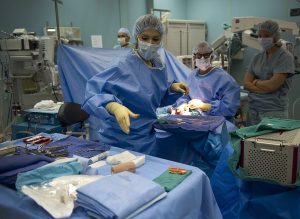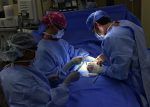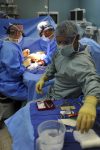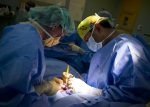
Once you have passed a long way from the moment you started to consider a surgical tech program to the actual degree, you may think that this is the end of your studying, but we have to disappoint you as the beginning of your career as a surgical tech cannot happen unless you possess a certification.
All the aspiring surgical tech professionals should be thinking about the importance of passing a surgical certification exam before entering the profession, as the license will make them more attractive and preferred candidates for a job, plus they will be able to negotiate the salary and working position.
It is worth noting that taking the exam is not a requirement for every job opportunity.
However, being certified can help in securing a career in the surgical tech profession, according to the Bureau of Labor Statistics (BLS).
You will need to be well prepared for the exam by knowing what the exam covers, how many questions you should expect on each topic, and what happens after the exam.
Page Navigation
Surgical Tech Certification Exam Basics
If you become certified through The National Board of Surgical Technology and Surgical Assisting (NBSTSA) you will get the title of Certified Surgical Technologist or CST.
To become a CST, you must pass their certification exam.
Those who are ready for the exam must apply with the NBSTSA and you can expect that the NBSTSA process your application after four to six weeks.
Exams are taken by appointment only and they take place on a computer.
The exam consists of 200 multiple-choice questions that have to be finished in four hours’ time.
You will need to have two forms of identification with you, as the NBSTSA requires.
The exam fee is $190 for AST members and $290 for non-members.
Types of Questions to Expect
When preparing for the exam, you can find the NBSTSA preparation resources.
The organization provides an outline that test-takers can follow to ensure they are ready for all areas of the test.
Test questions can fall into five categories:
- Pre-operative preparations – How to make sure all equipment is sterile and ready for surgery
- Intra-operative procedures – Identifying instruments and utilizing specialty equipment
- Post-operative procedures – How to clean up the room after surgery and remove equipment from the patient
- Administrative and personnel – Identifying safety hazards and knowing how to update a surgeon’s preference card
- Equipment sterilization and maintenance – Assembling equipment and maintaining records
You can know exactly what to expect each step of the way.
First, intra-operative procedures knowledge is essential and there are 66 such questions during the exam.
Anatomy and physiology are the next largest categories, with 30 questions, and there are 29 pre-operative preparation questions.
The rest of the exam consists of 10 questions each of post-operative procedures, administrative and personnel, equipment sterilization and maintenance, microbiology, and surgical pharmacology.
You do not need to worry about this exam as your classes and coursework have prepared you.
However, it is still suggested that you take some time to study and review what you have learned before exam day.
After the Exam
You may get your exam results five minutes after you complete the test, but this will depend on your exam location.
Getting familiar with the fact that you will get the results right away can help eliminate any testing anxiety you may have when taking other exams.
Bear in mind the fact that a CST credential must be renewed every four years by gaining continuing education credits or retaking the certifying exam.
Your expiration date will be printed on both your CST card and certificate.
Begin Your Professional Career as a Surgical Tech
Now we are sure that you understand the process to become a CST, and that you are ready to become a CST.
You can apply to take the test and set up an exam time with the NBSTSA at https://www.nbstsa.org/cst-first-timeretake-applicants








